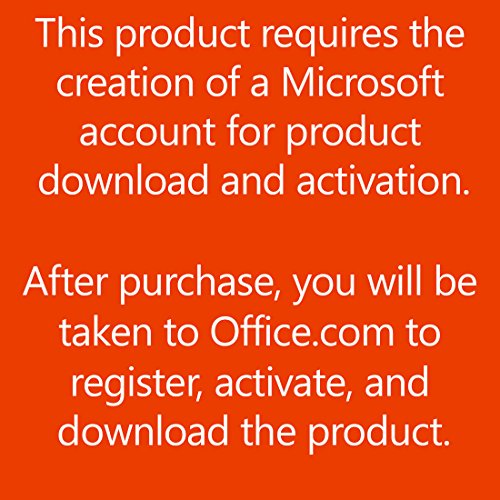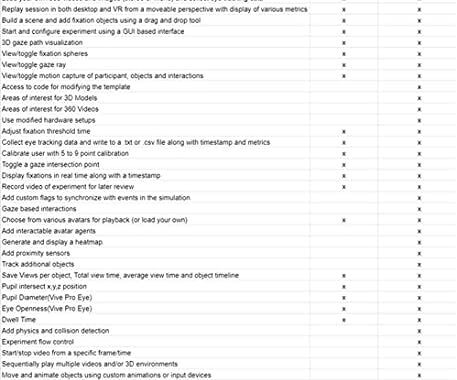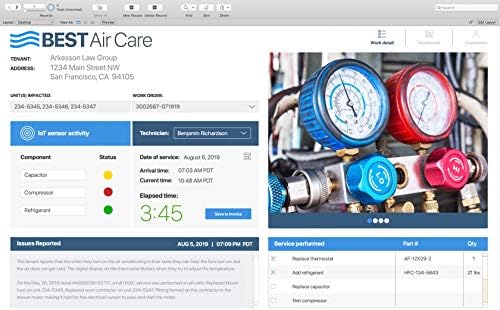Microsoft Access 2013 – Review

Introduction
Microsoft Access 2013 is a tool designed for managing databases, allowing users to create and manage all types of data efficiently. Access has everything you need to create a database, from simple lists to complex applications that require loads of forms, reports, queries, and macros.
System Requirements
 To install Microsoft Access 2013 on your computer, your system must meet the following minimum requirements:
To install Microsoft Access 2013 on your computer, your system must meet the following minimum requirements:
- Operating System: Windows 10, Windows Server 2012 R2, Windows 8.1, or Windows Server 2012
- Processor: 1 GHz or faster x86- or x64-bit processor with SSE2 instruction set
- Memory: 1 GB RAM (32-bit); 2 GB RAM (64-bit)
- Hard Disk Space: 3 gigabytes (GB) of available hard disk space
- Display: DirectX 10 graphics card
New Features in Access 2013
Access 2013 has several new features that make it easy to use, powerful, and convenient. Here are some of the new features:
- The new access interface looks similar to the other Microsoft Office programs, making it easy and convenient to use.
- You can now easily create web applications that are compatible with the Azure Access Services, allowing you to publish your database on the web and share with others.
- Access 2013 has a new feature called Quick Access Toolbar, that allows users to add frequently used commands to the toolbar, making it readily accessible.
- Microsoft Access also has a new import data wizard that makes it easy to import data from other sources, such as Excel files or Access databases.
Uses of Microsoft Access
Access is an excellent tool for managing data through databases. Here are some ways you can use Microsoft Access:
- Store and manage organizational data such as employee records, financial records, and customer information.
- Create and manage documents like invoices, purchase orders, and other templates.
- Design complex tracking and auditing systems, such as inventory tracking tools, project tracking tools, and time tracking tools.
- Create custom forms, reports, and queries to help you analyze and visualize data more efficiently.
Advantages of using Microsoft Access
Using Microsoft Access has several advantages when it comes to managing data effectively. Here are some advantages of using Access:
- Microsoft Access is user-friendly, making it easy to use for beginners with no programming knowledge.
- Access is a powerful tool that can manage more data than Excel or other Spreadsheet tools.
- Access allows you to create a wide variety of reports, and queries that help you analyze and visualize data more effectively.
- Access has robust security features that allow you to limit the access of data to specific users or groups.
- Access can help increase productivity by streamlining data management tasks, allowing you to focus on more critical business activities.
Disadvantages of using Microsoft Access
Like any tool, Microsoft Access also has its disadvantages. Here are some of the disadvantages when using Microsoft Access:
- Access is known for its limited capacity when handling huge amounts of data. There may be a need to switch to a more advanced option if you have a considerable amount of information to manage.
- Access does not provide many options for data visualization. This makes it often difficult to analyze data intuitively without exporting it to other tools.
- Access requires a lot of maintenance, it is necessary to keep an eye on database size, speed, and optimization to ensure it performs well and does not encounter glitches or technical issues.
- Access is most useful in the context of smaller teams or individual users. If a larger organization requires data management solutions, they will need to opt for more robust offerings like SQL Server or Oracle.
Conclusion
Microsoft Access 2013 is a useful tool for individuals and small teams who need to manage and store data effectively. With its user-friendly and powerful interface, Access makes it easy for users to manage data by creating databases, generating reports, and analyzing data. However, like any tool, Access has its advantages and disadvantages, making it important to weigh them carefully before making a commitment.

![Amazon.com: Band-in-a-Box 2019 Pro for Mac [Old Version]](https://www.coupondealsone.com/wp-content/uploads/2024/04/2O6e4Cw25Z6a.jpg) Band in a Box 2019 Flash Drive Review
Band in a Box 2019 Flash Drive Review  WorldViz SightLab Tracking Software Omnicept Review
WorldViz SightLab Tracking Software Omnicept Review  Math ACE Jr. Review: A Must-Have Learning Tool for Kids Ages 4-8
Math ACE Jr. Review: A Must-Have Learning Tool for Kids Ages 4-8  Review of Image Line Software Studio Signature Bundle
Review of Image Line Software Studio Signature Bundle  FileMaker Pro Advanced Review
FileMaker Pro Advanced Review ![Amazon.com: Punch! ViaCAD 2D/3D v12- For Mac [Mac Download] : Software](https://www.coupondealsone.com/wp-content/uploads/2024/04/YBusi9QdX6E2.jpg) ViaCAD v12 for Mac Review
ViaCAD v12 for Mac Review  Elevate Your Baking with the Stylish and Powerful Drew Barrymore 5.3-Quart Stand Mixer
Elevate Your Baking with the Stylish and Powerful Drew Barrymore 5.3-Quart Stand Mixer  Review of the Sterilizer Charging Wireless Certified Sanitizer
Review of the Sterilizer Charging Wireless Certified Sanitizer  DESTEK VR Controller Review
DESTEK VR Controller Review